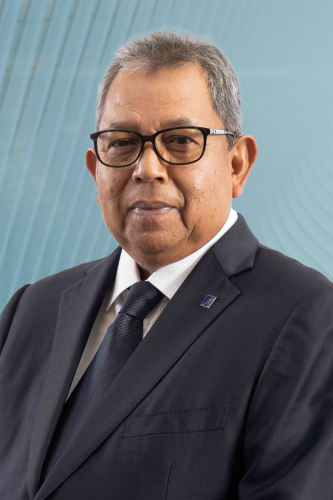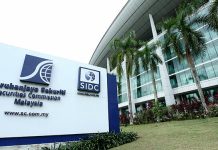SMEs have benefited from better access to financing through initiatives such as the Malaysia Co-Investment Fund (MyCIF). Since its inception in 2019, MyCIF has facilitated aggregate disbursements of RM250 million, which have been recycled to RM930 million, benefiting 54,695 ECF and P2P financing campaigns.
These efforts have attracted private investment amounting to RM3.82 billion said Securities Commission Chairman Dato’ Seri Dr. Awang Adek Hussin in his opening address at the Global Forum on Islamic Economics and Finance (GFIEF).
As such, Awang Adek called upon key stakeholders to unlock the true potential of Islamic finance. Emphasizing the need for a comprehensive and sound Islamic ecosystem, he reflected on the SC’s Islamic capital market (ICM) journey over the past decades and shared strategic initiatives for the future.
Awang Adek highlighted the significant global growth of Islamic finance assets, which have seen a remarkable increase over the past 60 years. These assets reached an estimated US$4.5 trillion in 2022 and are projected to rise to US$6.7 trillion by 2027.
Despite this impressive growth, he cautioned against complacency, urging the industry to strive for further development by fostering a robust and inclusive Islamic ecosystem. This includes promoting collaboration between regulatory bodies, financial institutions, investors, and policymakers, particularly among Muslim countries, to unlock new opportunities.
Malaysia has established itself as a global leader in sukuk issuance, accounting for 35% of the world’s outstanding sukuk in 2023. The country’s Islamic finance ecosystem has expanded significantly, with Bank Negara Malaysia leading efforts in Islamic banking and takaful, and the Securities Commission Malaysia (SC) developing the Islamic Capital Market (ICM).
By the end of 2023, the ICM accounted for nearly 64% of Malaysia’s capital market, reaching RM2.4 trillion. Total sukuk outstanding exceeded RM1.2 trillion, Islamic fund assets under management surpassed RM226 billion, and Shariah-compliant equities accounted for RM1.2 trillion.
The dominant presence of Shariah-compliant securities on Malaysia’s stock exchange is another crucial aspect of the ecosystem. Since the SC announced the first official list of Shariah-compliant securities in 1997, the number of such securities has grown to 816, representing more than 80% of the total listed companies.
In the asset management sector, 58 Islamic asset management companies manage portfolios worth RM236.6 billion, comprising both locally incorporated foreign companies and local firms.
Digital technology has played a vital role in sustaining Malaysia’s economy and society. The proliferation of innovative fintech solutions has enhanced financial inclusion, accessibility, and efficiency.
Developments such as digital banking, blockchain, and artificial intelligence are revolutionizing the financial landscape, offering new opportunities for Islamic finance to expand its reach and impact.
The SC introduced alternative financing platforms in 2015, leading to the launch of Equity Crowdfunding (ECF) and Peer-to-Peer (P2P) financing. In 2023, Shariah-compliant ECF and P2P financing accounted for 24% of overall funds raised, with total funds raised through Shariah-compliant financing increasing almost four-fold to RM524.8 million.
The advent of robo advisory and Digital Investment Management (DIM) has widened access to high-quality investment advisory services. By 2023, the assets under management (AUM) of DIMs had grown 400 times since the introduction of the DIM Framework in 2017, reaching RM1.6 billion, with more than half of the clients living outside of Klang Valley and almost a third being women.
To promote innovation and capacity building in the fintech space, the SC introduced FIKRA ACE in 2023 to help scale up, guide, and connect potential start-ups with innovative Islamic fintech solutions. More than 20 start-ups globally have participated in the program, focusing on wealth management, social finance, and sustainability.
The SC has laid the groundwork for sustainable growth, integrating Islamic finance with the sustainability agenda. Initiatives such as the SRI Sukuk Framework, introduced in 2014, facilitate the financing of sustainable and responsible investments. The SRI Roadmap issued in 2019 and the SRI-linked Sukuk Framework introduced in 2022 support the transition to net-zero.
Awang Adek emphasized the importance of robust Shariah governance in driving innovation. The SC’s Shariah Advisory Council (SAC) introduced a two-tier Shariah governance framework to ensure harmonized understanding of Shariah rulings and empower the industry to develop ICM products. Today, there are 102 Shariah advisers in Malaysia, playing a crucial role in the industry’s development.
The SC is also putting in place measures to support the national sustainability agenda and strengthen Malaysia as a regional SRI hub. SRI Shariah screening for public listed companies will be introduced later this year, aimed at refreshing the regulatory ecosystem for sustainability and facilitating a just transition.
The establishment of a Social Exchange will provide a platform for social enterprises and non-profit organizations to raise funds for projects benefiting underprivileged segments of society.
In his closing remarks, Awang Adek underscored the need for continuous improvement in Islamic finance and expressed hope that the discussions at GFIEF would bring the global Islamic financial system closer to perfection, aligning with the core objectives of Islamic finance.

























